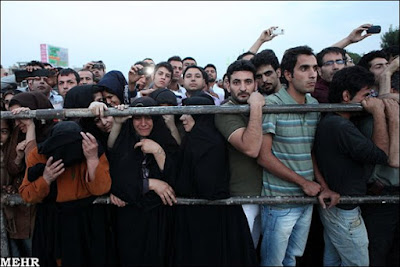A division bench of Lahore High Court (LHC) on Wednesday disposed of a petition seeking public hanging of Imran Ali, the man convicted in rape and murder of 7-year-old Zainab Ansari in Kasur, by declaring it as premature.
A 2-member LHC bench headed by Justice Sadaqat Ali heard the plea seeking the public hanging of the convict.
During the proceedings, the court observed that Imran Ali had three forums to file his appeals and no action would be taken until the rejection of his pleas.
Pakistan Awami Tehreek (PAT) lawyer wing member Ishtiaq Chaudhry had moved the petition requesting for public execution of Imran Ali. He pleaded that the court could issue orders for publicly hanging Imran, who was awarded 4 times death penalties for raping and murdering Zainab, as there was no need to make an amendment to the law to provide for public executions in the country.
Ishtiaq Chaudhry had contended that it was necessary that the convict should be given exemplary punishment. He also sought directives that Imran should be hanged right where the body of minor Zianab was found.
On February 17, an anti terrorism court (ATC) had awarded 4 counts of death penalty to Imran in Zainab murder case and also sentenced him to life imprisonment and a separate 7-year-term. The court also ordered him to pay a collective fine of Rs 3.1 million. The trial court had awarded Imran death sentence along with fine of Rs 1 million under Section 364-A and 376 of Pakistan Penal Code (PPC). He was given death sentence under Section 302-B PPC and Rs1 million under Section 544-A of Criminal Procedure Code (CrPC), as compensation to the legal heirs of the victim girl.
He was further awarded death sentence under Section 7 (a) Anti Terrorism Act (ATA), 1997, with fine of Rs 1 million and life imprisonment with fine of Rs 1 million under Section 377, and further 2-year imprisonment if he fails to pay fine.
The rape and murder of the minor girl had drawn public wrath across the country she went missing on January 4 and was found dead in a trash heap in Kasur on Jan 9.
Her case was the 12th such incident to occur within a 10 kilometre radius in the city over a 12-month period.
Source: Daily Times, February 21, 2018
⚑ | Report an error, an omission, a typo; suggest a story or a new angle to an existing story; submit a piece, a comment; recommend a resource; contact the webmaster, contact us:
deathpenaltynews@gmail.com.
Opposed to Capital Punishment? Help us keep this blog up and running! DONATE!
"One is absolutely sickened, not by the crimes that the wicked have committed,
but by the punishments that the good have inflicted." -- Oscar Wilde












